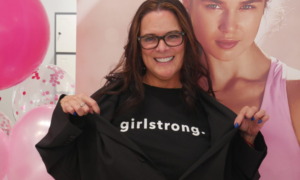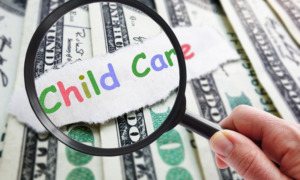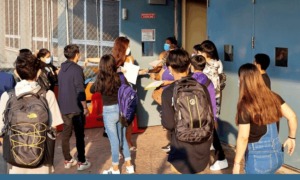The National Association for the Education of Homeless Children and Youth published “College Access and Success for Students Experiencing Homelessness: A Toolkit for Educators and Service Providers.” This comprehensive guide by Christina Dukes:
- Gives advice to professionals working with homeless youth for every step of the process from selecting a school to applying for admissions, financial aid and private scholarships, and succeeding once enrolled.
- Addresses overcoming common barriers, such as completing financial aid forms for young people who no longer have relationships with their parents.
- Lists federal programs that can help disadvantaged student enter, pay for and graduate from post-secondary programs, including Upward Bound, GEAR UP and Student Supportive Services Programs, as well as federal protections given to students under the McKinney-Vento Act.
- Contains a tip sheet for college students experiencing homelessness.
- NAEHCY also has a helpline for homeless youth who want to attend college — which also advises adults working with these youth — as well as numerous other online resources for financial aid and other issues for homeless youth: naehcy.org/educational-resources/higher-ed
Casey Family Programs published “Supporting Success: Improving Higher Education Outcomes for Students from Foster Care” (bit.ly/Hz2NYG) by John Emerson and Lee Bassett. This guide for programs and professionals who want to support foster youth in achieving post-secondary education includes:
- Discussions of relevant laws and the protections and resources they can provide, including the Higher Education Opportunity Act and the Fostering Connections Act;
- Strategies for supporting the academic and financial needs of foster youth applying to or enrolled in higher education;
- Profiles of institution-based and statewide efforts to support students, including collaborative efforts with child welfare systems.
Programs That Help Disadvantaged Students Succeed
Many programs in communities across the country are working to help nontraditional students envision and achieve post-secondary goals. Here are a few:
- College Success Foundation (collegesuccessfoundation.org) provides advising, mentoring and scholarships to students from Washington state and Washington, D.C. Its unique program begins with enrichment and college-readiness programming for 7th and 8th grade males.
- Bridge programs at many colleges and universities give extra academic preparation and support (often during the summer) for students who have low achievement because of their circumstances rather than their aptitude. Examples include programs at LaGuardia Community College in New York, California State University, Long Beach, and University of Wisconsin-Parkside.
- The TRIO program is a set of federally funded initiatives, including Upward Bound, Talent Search and Student Support Services, that helps disadvantaged students understand, prepare for and succeed in post-secondary education.
- The Orange Duffel Bag Foundation is a Georgia nonprofit that provides coaching, mentoring and advocacy to disadvantaged youth, primarily through a 12-week after-school coaching program.
-Lisa Pilnik































